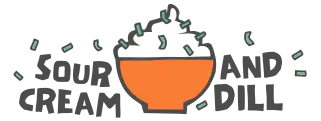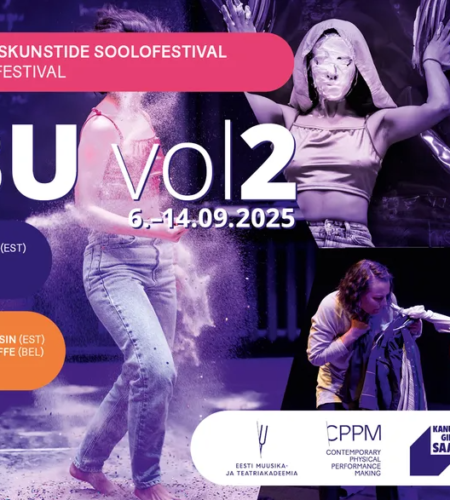For the second-presented show of CPPM’s LÄBU festival, which is ordinally Episode 3, those of us who attended Episode 1 are running about 45 minutes behind schedule as we take a stroll around the block to a residential building nearby – after a brief diversion through the Oyster Festival in EAMT’s courtyard, where the intrepid Ana Trif borrows the mic to inform and invite attendees to check out LÄBU. As we were informed by an email a few days before the show, we’ll be joining the next performer at his flat for the show “Taxonomy of a Mom”. It is in a classic Stalinist building of the neighbourhood, long narrow rooms with a window at each far, short end.
Daniel Ortiz Amezquita greets us at the door, where we remove our shoes and put in requests for coffee and tea before piling into his living room, which has sofas and chairs crammed along one long wall facing the coffee table and a television. The center of the coffee table is illuminated by several desk lamps spread around its edges, and we shoulder into our seats opposite this little stage, elbow to elbow with a strange and sudden intimacy. Having served out the beverages, our host exits briefly, drawing a curtain across the living room’s doorway.

Ortiz Amezquita enters carrying small travel cases, and begins with a play of light, mirrors, reflection and projection. It is a fitting introduction to the piece, an intricate work of object storytelling, self-portraiture through shadow and sound, thinking back and calling back, falling in and out of history with his story. In a manner almost call-and-response, we witness a literal unpacking, well-considered and surprising, as object-character-concepts are introduced to us and labelled through their relationships to one another and relativity in personal memory and physical space. There is a determined thread of hyper-real unreality to the show, as much in the gaps and silences, the words written and erased, as in the voices that speak to us, recorded or live, both our host and his mother.
The event’s description suggests it is a kind of game, and it is a playful examination of what we carry with us, and what we find in our new “here” to remind us. We are invited to adjust our perceptions, rewrite the past in the light of a new present, and create new understandings. The television is used to add unspoken but essential thoughts and details, the parts perhaps that our host knows but cannot yet speak aloud. There are revisions, contradictions, and interactions as we accept and agree on the meanings of objects within their stories. There is no sloppiness of placement or purpose in this making and remaking.

A joke made at the beginning of the show comes back around to end it, as well, culminating in a live phone call with Ortiz Amezquita’s mother. I don’t understand enough to know if she knows we’re all there, breathless, as she rolls on unaffectedly dominating and loving; his lived experience with her presence and absence, shared so intimately, vulnerably, with us.
The entire show was unexpected, intricate, and rewarding. Though the LÄBU festival is over and the 2025 Tallinn Fringe Festival ends tomorrow, it’s worth keeping an eye on the CPPM program calendar for more chances to watch these artists evolve over the final year of the Master’s degree.

Subscribe to our email newsletter to get the latest posts delivered right to your email.

